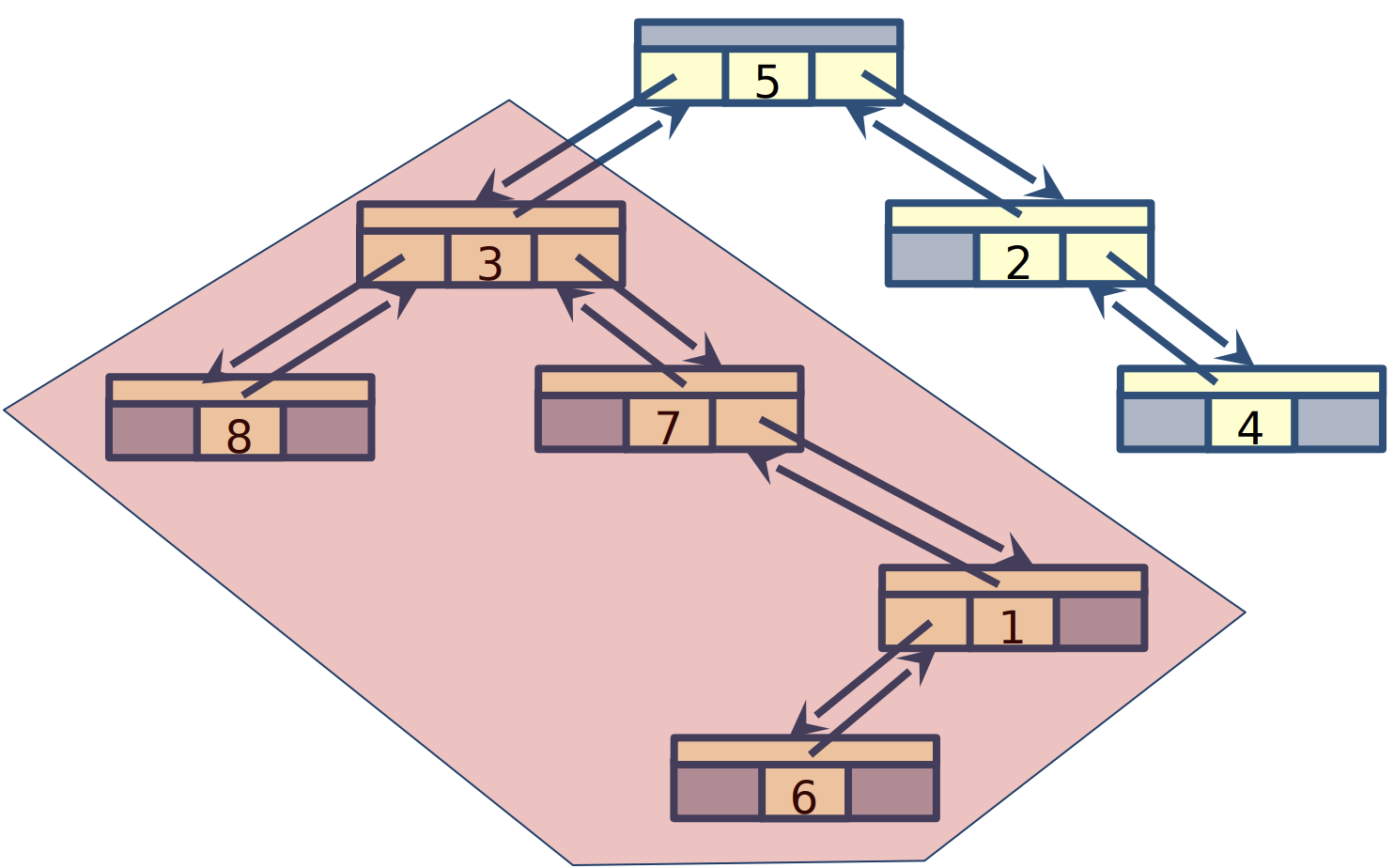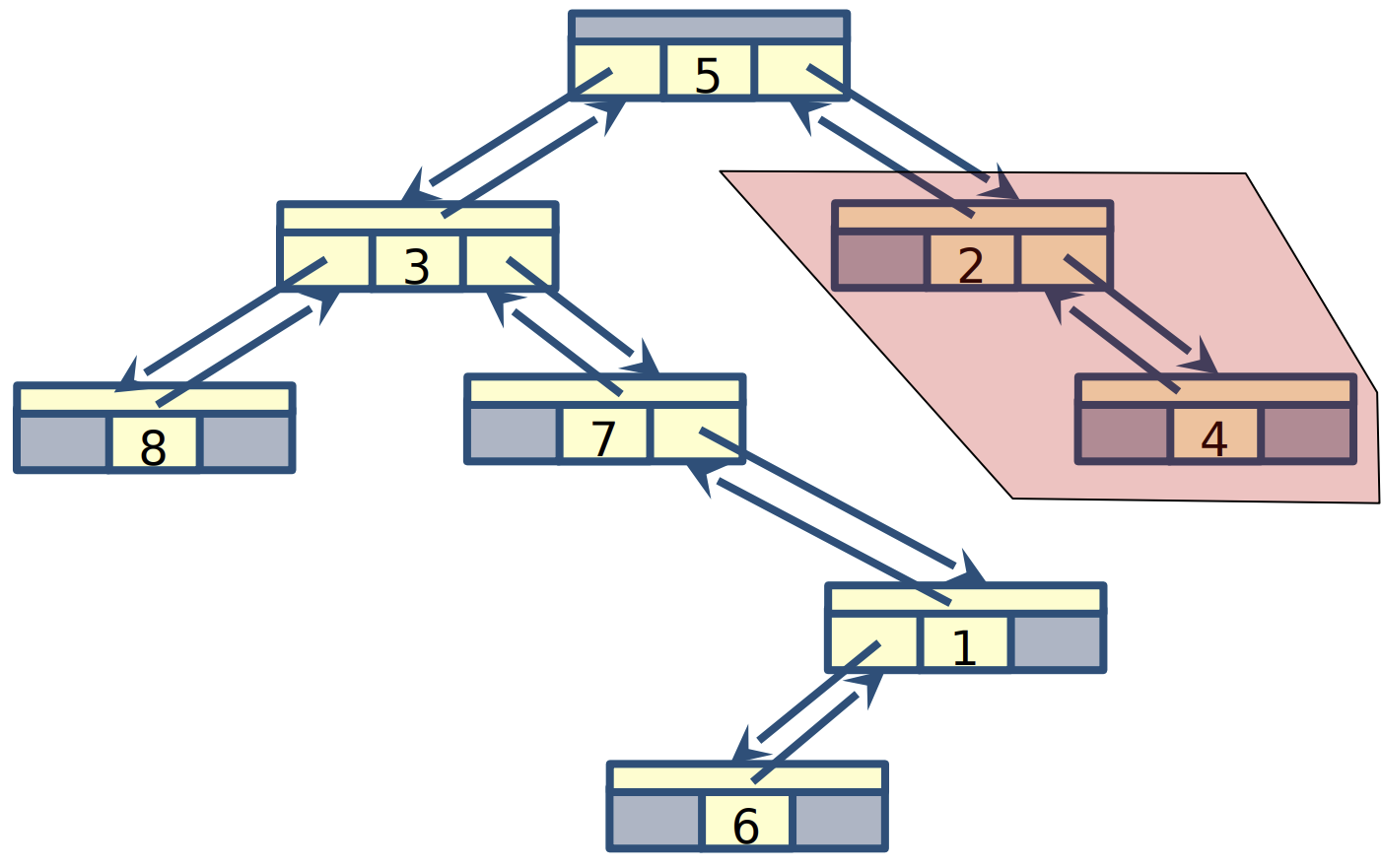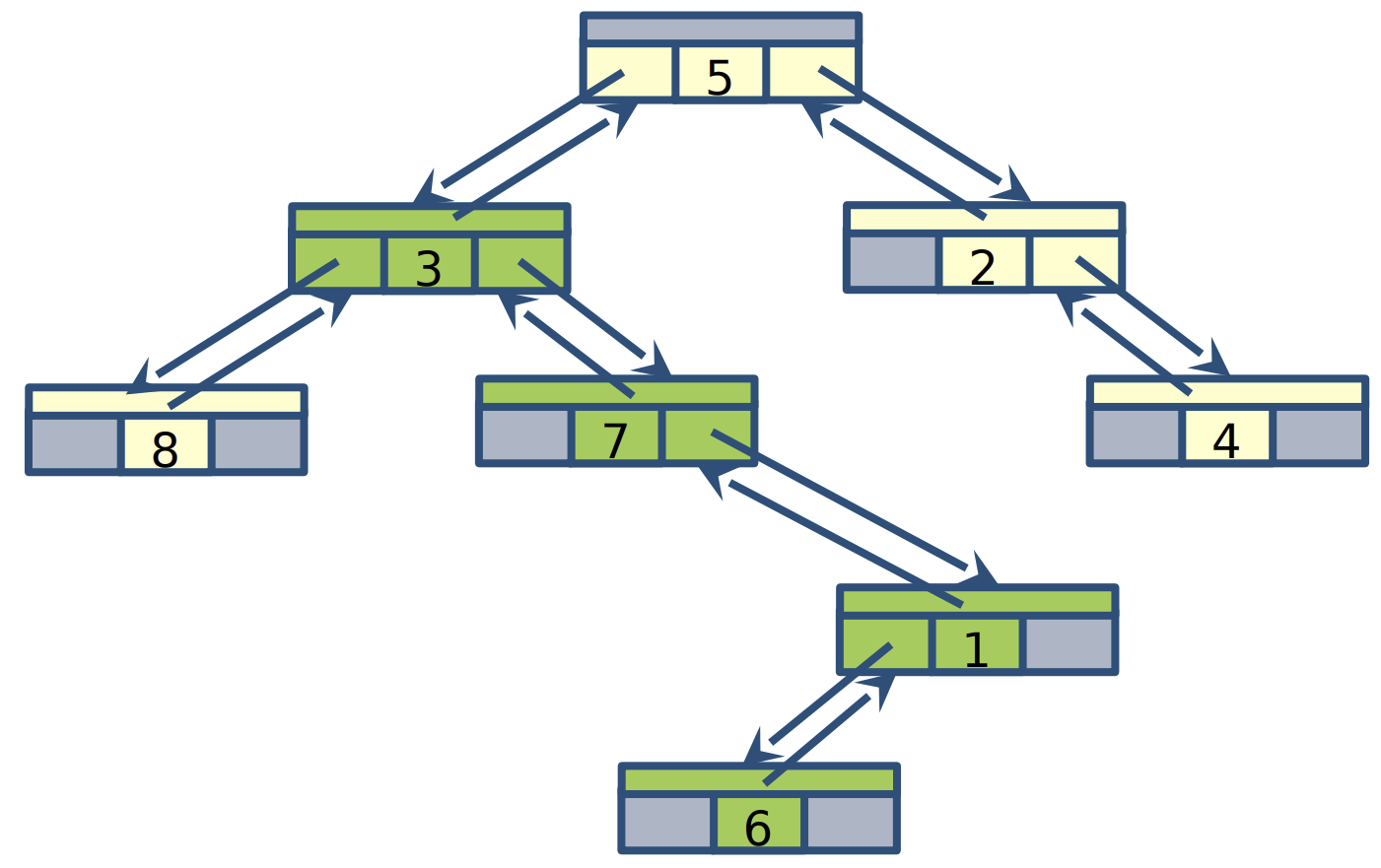Binary Tree
A binary tree is a linked data structure in which each node x has an attribute key and three pointer attributes
- x.p points to its parent
- x.left points to its left child
- x.right points to its right child
- The root of the tree is the only node whose parent is NIL
- Node x is a leaf when
x.left = x.right = NILGiven a tree T - T.root points to the root element of tree T
- If
T.root = NIL, the tree is empty
The height (h) of a tree is the length of the longest path from the root These trees can be traversal in different ways.
| Left subtree | Right subtree |
|---|---|
 |  |
Path from 3 to 6:
- 3,7,1,6 = length 3

Balanced trees
a balanced binary tree is a binary tree in which the left and right subtrees of every node differ in height by no more than 1
- Height
k-array trees
Trees with a bounded number of children (k-array trees) can be easily represented with additional pointer attributes
Limitations
- A lot of NIL values if many nodes have less than k children
- k is fixed (it needs to be known in advance)
unbounded branching
Trees with an unbounded number of children can easily be represented with additional attributes
- x.left-child points to the leftmost child of x
- x.right-sibling points to the sibling of x immediately to its right
Limitations
- Accessing a child is O(k) as we need to scan all the list of children to access the rightmost child
- k is the maximum branch degree